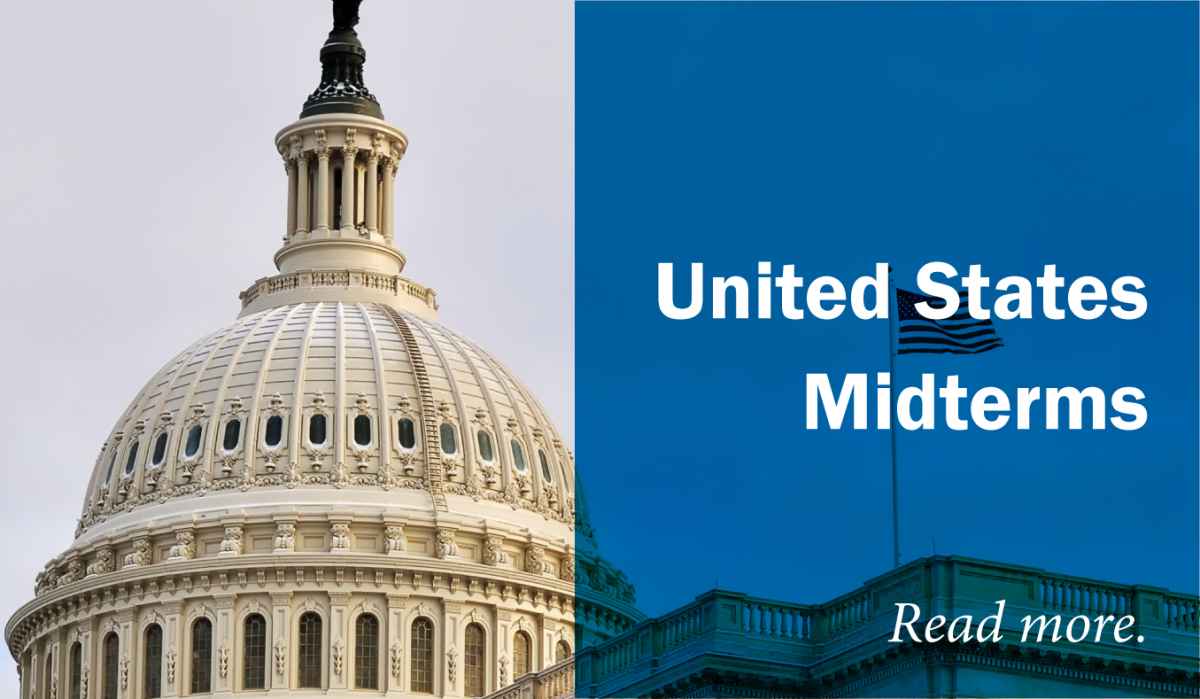An Inflection Point for America’s Democratic Future
"This election could bring an even cockier Trump or put Europe in the partisan crossfire." –Derek Chollet
For the future of American politics, the 2018 congressional elections will likely be the most consequential in over two decades, at least since the 1994 Republican takeover led by Newt Gingrich. Yet regardless of the outcome, do not expect a major improvement in relations between the United States and Europe. In fact, things will likely get worse.
Consider the two possible scenarios. First, the Republicans hold back the Blue Wave. This may seem improbable, but recent polls suggest they will likely maintain control of the Senate, and could hold onto control of the House. Current estimates show Republicans with about the same odds of keeping the House majority as Donald Trump had winning the presidency in 2016.
If the GOP prevails, it will be seen as a reaffirmation of everything Trump has stood for and a vindication of the manner in which he has done so. Trump will have once again defied expectations and made history — doing something presidents from Harry Truman to Barack Obama failed to do — and he will be sure to remind us all every day.
This would mean, if one can imagine it possible, an even bolder and cockier Trump who believes he is politically bulletproof. He will be a leader in total control of his party and every branch of government, with a fresh mandate and complete confidence to implement his policy instincts. Congress would be an accelerant not a brake, and we should expect brash action on everything from trade to the Mueller probe on Russia. Another likely consequence would be a transatlantic relationship careening off the cliff.
What if the Democrats win the House? With one-half of one branch of the U.S. government outside Trump’s control, there would be a meaningful check on his policies. Democrats would pursue a policy agenda that would be more congenial to Europe on issues like trade, climate change, the Iran nuclear deal, NATO’s future, and arms control. And if Trump is politically wounded, there is greater chance he will be more vulnerable to pushback from the few Republican moderates left on Capitol Hill, or even a primary challenge in the 2020 election.
We will either see an emboldened president with fewer checks on his power, or an embattled president struggling with a Democratic-controlled Congress over constitutional authority.
Yet Democratic control in the House will also give the president more of an enemy to target, and Europe will likely get caught up in the partisan cross-fire. For example, consider this scenario: when European leaders visit Washington, in addition to their meetings with administration officials they will also pay a customary trip to Capitol Hill. There they will meet with the Democratic Speaker of the House and key Committee chairs. Democratic leaders will travel abroad to send a different message about America in the world (as many Republican Hill leaders have been doing for the past two years).
How will Trump react to all this? You can already write his early morning tweet, fueled by conspiracy and grievance: “You want to talk about COLLUSION and TREASON? The treasonous DEMOCRATS are colluding with Europeans to undermine America!” So the danger is that the transatlantic relationship will become yet another victim of partisan tribalism — which will only get more intense as the 2020 election approaches.
Moreover, regardless how the midterms end up, Washington is buzzing with rumors that more of those Administration officials who allies have looked to for continuity and reassurance — such as Secretary of Defense James Mattis, or Chief of Staff John Kelly — will follow UN Ambassador Nikki Haley (and H.R. McMaster, and Gary Cohn, and Rex Tillerson…) out the door.
Seen this way, the midterms will be an inflection point for America’s democratic future. It is hard to envision an outcome that will bring more stability in the short term. We will either see an emboldened president with fewer checks on his power, or an embattled president struggling with a Democratic-controlled Congress over constitutional authority.
Therefore, it is best to assume that after November Washington will remain so distracted and divided that there will be little bandwidth for ambition in the world — beyond disruption.
Read the full publication »
Photo Credit: Artifan / Shutterstock
